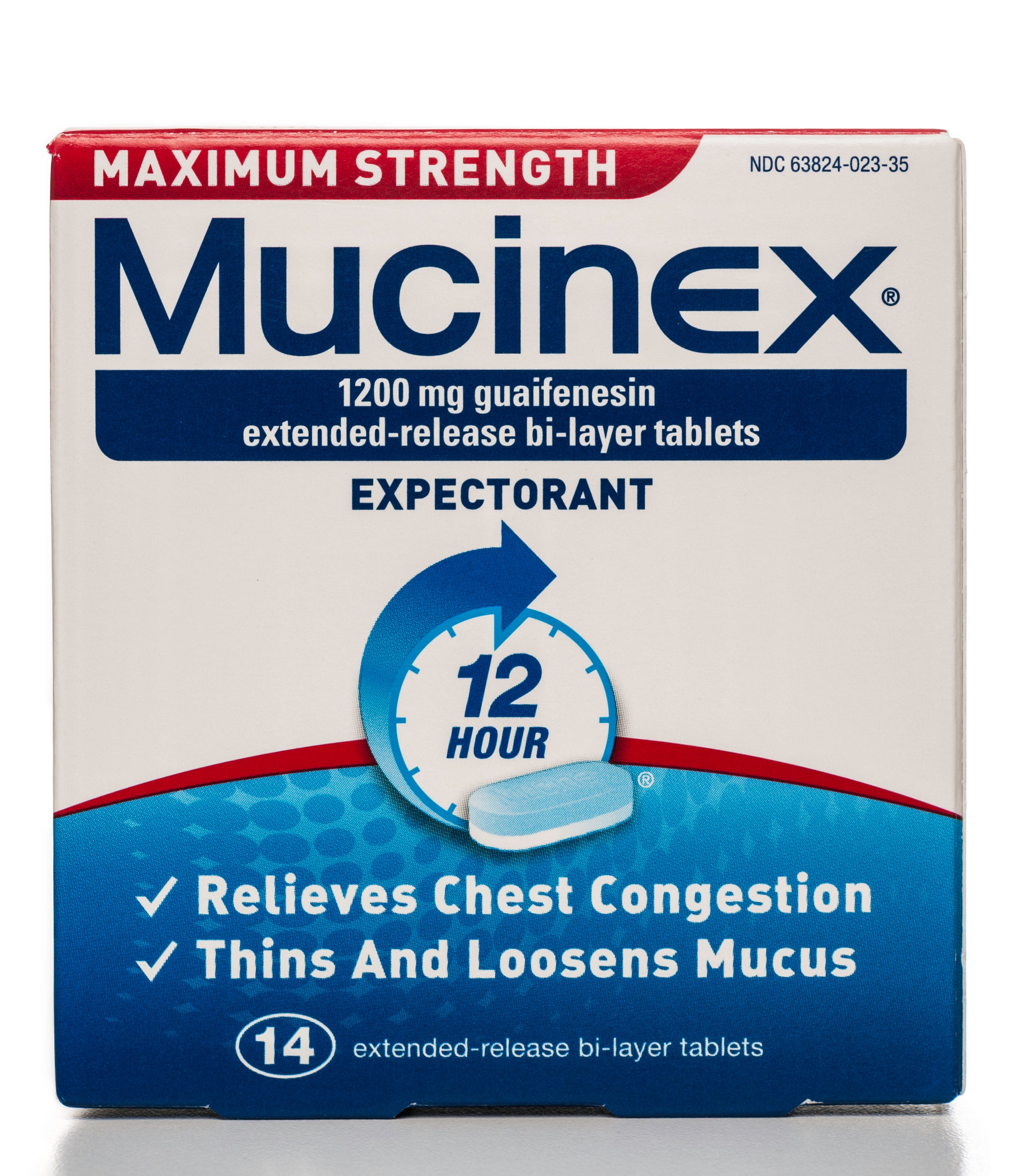Can Mucinex help you get pregnant? Women claim the cough and cold medicine is boosting their fertility
Reckitt, the producer of Mucinex, does not recommend using the medicine to help with fertility

Your support helps us to tell the story
From reproductive rights to climate change to Big Tech, The Independent is on the ground when the story is developing. Whether it's investigating the financials of Elon Musk's pro-Trump PAC or producing our latest documentary, 'The A Word', which shines a light on the American women fighting for reproductive rights, we know how important it is to parse out the facts from the messaging.
At such a critical moment in US history, we need reporters on the ground. Your donation allows us to keep sending journalists to speak to both sides of the story.
The Independent is trusted by Americans across the entire political spectrum. And unlike many other quality news outlets, we choose not to lock Americans out of our reporting and analysis with paywalls. We believe quality journalism should be available to everyone, paid for by those who can afford it.
Your support makes all the difference.Women are claiming Mucinex, the common over-the-counter cough and cold medicine, helped them get pregnant.
Between at-home remedies and cycle tracking, there are many suggested practices to help increase the likelihood of pregnancy. However, many women online believe the $14.99 relief pill, usually purchased at drug stores and pharmacies, is why after five months of trying, they finally got pregnant.
“The Mucinex Method” is going viral on TikTok as millions of viewers are clicking on #mucinexdpregnancy, listening to soon-to-be mothers explain how they used the medicine to assist in reproduction.
Amanda MacGibbon posted a video, urging other women to follow suit by taking Mucinex Fast-Max All-in-One if they want to get pregnant. The lifestyle influencer said she took the medicine 30 minutes before “baby dancing,” or sexual intercourse, because it only lasts 12 hours.
According to her, any kind of Mucinex or medicine with “guaifenesin” will work. Guaifenesin is used to clear mucus and phlegm from the chest, according to a Mayo Clinic report.
“Around ovulation time, your body will naturally thin the cervical mucus. Thinning the cervical mucus does not mean that it’s taking away cervical mucus,” MacGibbon claimed. “Mucinex will thin it even more, and so it makes it more slippery so the sperm can get to where it needs to go.”
She continued: “You want to take it (Mucinex) during your high fertility week.”

With thousands of videos posted under the hashtag, experts and doctors began weighing in on some of the theories about Mucinex aiding fertilization.
Dr Karen Tang, a certified gynecologist, took to her TikTok to argue the idea that guaifenesin “might make it easier to get pregnant” is nothing new. That said, there is no concrete proof that it works, which is why doctors don’t prescribe Mucinex to women who are trying to get pregnant.
In Dr Tang’s April 4 video, she cited a 1982 study from the Fertility and Sterility journal. Entitled “Improvement of cervical factor with guaifenesin,” the study examined 40 couples who were experiencing infertility due to a “cervical issue” and tested them postcoital “before and after having the women take Mucinex.”
Women were given 200mg of guaifenesin three times a day on and after the fifth day of their menstruation cycle.
“About half of the couples did show some significant improvement,” said Dr Tang. “But there’s no comparison group in this study, meaning that there’s no placebo group, people not taking Mucinex, so we can’t say taking Mucinex improved it this much. This effect could have been random chance.”
However, a 2010 case report, “Guaifenesin and increased sperm motility,” did show evidence of improvement in the sperm count of one patient after they’d taken 600mg of guaifenesin twice a day for two whole months. Again, researchers weren’t able to officially confirm that guaifenesin was the cause of this outcome.
Speaking to Good Morning America, Dr Jessica Shepherd, a board-certified OB-GYN, echoed Dr Tang’s sentiments, saying Mucinex hasn’t been identified as the cause of significant improvements in cervical mucus in either of the studies that have been done.
“When we actually look at the data and the studies that have been done on Mucinex and fertility, we know that it hasn’t significantly improved the quality of cervical mucus, which could, again, help with some of the motility of the sperm getting to the egg,” she remarked.
In a statement to GMA, Reckitt, the manufacturer of Mucinex, reiterated the importance of using the cough and cold medicine for its intended use. While the company admitted they were aware of women claiming it helped them get pregnant, using it as a method for reproduction is considered an “off-label use” of the medicine.
“Taking any medications outside their approved indications or without acknowledging all active ingredients may be harmful. In case of doubt, we recommend women have a discussion with their healthcare professional. Please always read the label and safety information before taking any self-care medication,” the company stated.
Join our commenting forum
Join thought-provoking conversations, follow other Independent readers and see their replies
Comments